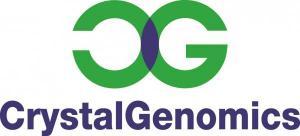Crystal Genomics said that it has confirmed the efficacy of CG-598, an inflammatory bowel disease (IBD) treatment candidate, through a pre-clinical trial.

As a result of animal experiments on rats, the company observed the therapeutic effect of CG-598 in both the artificially created dinitrobenzene sulfonic acid-induced colitis model and dextran sulfate sodium-induced colitis model.
Additional clinical trials also showed that the company's treatment was more effective than Pfizer's Xeljanz, a Janus kinase inhibitor, in the treatment of ulcerative colitis.
IBD is a group of inflammatory conditions of the colon and small intestine, while Crohn's disease and ulcerative colitis are the most common IBD diseases. While experts presume that the cause of the disease is due to the abnormal immune response to the intestinal antigen, the exact cause of the disease is still unknown, making it hard to treat.
"Conventional treatments such as salicylic acid and steroid drugs have shown poor efficacy as well as serious side effects," the company said. "This is why the medical community has recently been prescribing anti-TNFα antibodies to treat IBD."
However, more than half of the patients do not respond to the anti-TNFα antibody therapy, while the anti-TNFα antibody can cause a variety of risks, such as lymphoma development, immunity suppression, and vulnerability to infection.
The company believes that CG-598 will become a new treatment option for such patients.
"By stabilizing hypoxia-inducible factor-1α (HIF-1α), CG-598 combines multiple pathogenic factors through antimicrobial actions," a company official said. "Therefore, the drug is the ideal candidate for the treatment of a multidrug-like disorder such as IBD."
Among the three IBD treatments companies that are being developed, CG-598 acts only on the intestine wall and shows no toxicity or side effects, he added.

